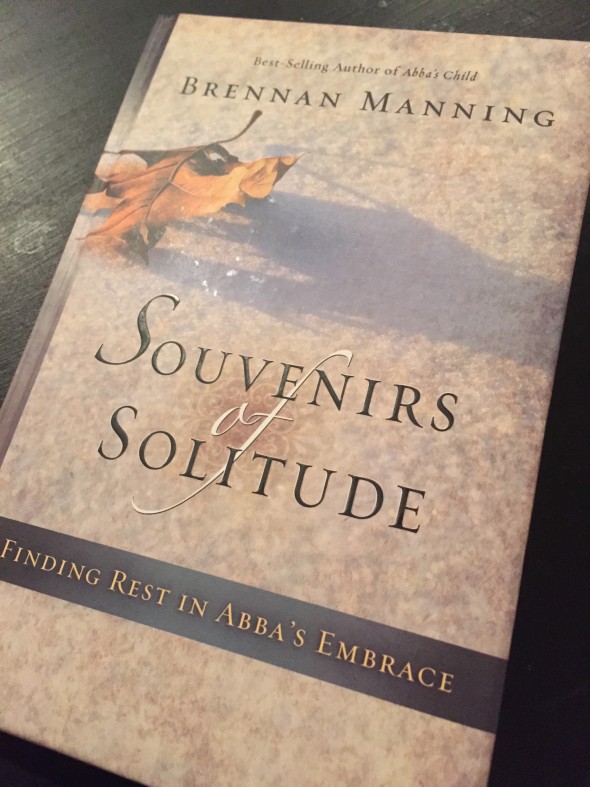
Too Much to Swallow?
Souvenirs of Solitude, Finding Rest in Abba’s Embrace, by Brennan Manning, has been my companion most of this fall. For me, it has lived up to its name as I’ve attempted to carve out moments of solitude and quiet for myself. Through Manning’s own “souvenirs” of reflections I have felt Abba’s embrace and dared to believe and revel in His lavish and “kooky, embarrassing kind of love.” For me. One of His kids. One of His prodigals. One of His “least of these.”
These particular reflections of Manning, the street-wise mystic, are reminders that though we are all “ragamuffins” (see Manning’s Ragamuffin Gospel, 1990) and grateful recipients of God’s grace, our call is not just to be recipients, but to be givers as well—as lavishly as God Himself.
The excerpt that follows here indicates that what is true of grace, is also true of love.
Pamela Klein
Editor, On Q
There is a fascinating passage in chapter 8 of John’s Gospel about the woman caught in sin. Remember how the crowd dragged her before Jesus and asked, “What do we do about her? She was caught in adultery. Moses says we should stone her, but the Romans won’t let us stone people. What do you think?”
Jesus just ignored them and began to write in the sand. Then He looked up and said, “Well, let the one here who hasn’t committed any sin throw the first rock.” One by one they drifted away. Then Jesus said to the woman, “Is there no one here to condemn you?” She replied, “No one, Lord.” He answered, “Okay, go, and don’t commit this sin anymore.”
Now get the picture. Jesus didn’t ask her if she was sorry. He didn’t demand a firm purpose of amendment. He didn’t seem too concerned that she might dash back into the arms of her lover. She just stood there, and Jesus gave her absolution before she asked for it.
That particular passage was so scandalous in the early church that though it is certainly part of an ancient gospel tradition, it didn’t get included in the gospel story for almost a hundred years…The early Christian moralists had a much stricter idea of good and evil than Jesus did, so they tried to hush up this incident because it made Jesus look too lenient.
And that’s the nature of God’s love for us—a love that is positively scandalous, a love that’s embarrassing. Why doesn’t this God of ours display some taste and discretion in dealing with us? Why doesn’t He show more restraint? To be perfectly blunt about it, couldn’t God arrange to have a little more dignity? Wow!
Now, if we were in His position, we’d know perfectly well how to behave…. I don’t think anyone here would have approved of throwing rocks at the poor woman…but we would have made darn sure that she presented a detailed act of contrition and was very firm in her purpose of amendment. Because if we let her off without her saying she was sorry, wouldn’t she be back into adultery before sunset?
No, the love of our God isn’t dignified at all, and apparently that’s the way He expects our love to be. Not only does He require us to accept His kooky, embarrassing kind of love, but once we’ve accepted it, He expects us to behave the same with others. I suppose I could live, if I had to, with a God whose love for us is embarrassing. But the thought that I’ve got to act that way with other people —that’s a bit too much to swallow.
Brennan Manning
Souvenirs of Solitude (Dimension Press, 1979; NavPress 2009)
On Q will feature more from Manning on God’s lavish love on Wednesday.
